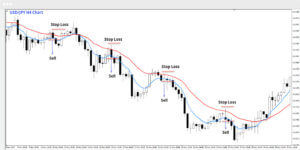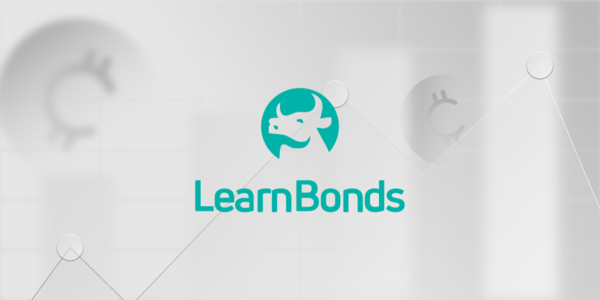Forex Trading Malaysia – A Beginner’s Guide
Forex trading is one of the most popular forms of trading around the world. It gives you exposure to the global currency market, in which you can buy and sell currencies from around the world, including the ringgit, the US dollar, the British pound, and many more. The forex market is active 24/7 and moves quickly, so it’s important to fully understand how forex trading in Malaysia works before you jump in.
In this guide to forex trading for beginners, we’ll cover everything you need to know to get started. We’ll compare best forex brokers you can use to trade currencies today, explain how the forex market works in Malaysia, cover some forex trading strategies and much more.
-
-
How to Trade Forex in 3 Quick Steps
Want to start trading forex right away? Just follow these three steps:
Step 1: Choose a Malaysia Forex Trading Platform
Below are the best forex brokers available in Malaysia. These regulated and highly secure platforms offer a wide range of currency pairs, excellent trading tools and competitive fees, so they all deliver a top forex trading experience.
1. Plus500 - Trade Forex with Low Spreads
Plus500 was established in 2008 and has grown to become a major player in the online trading industry. It offers CFD trading for most major and minor currency pairs. It is regulated by reputable agencies such as the FCA, ASIC, CySEC, FCSA and FMA.
This broker does not charge commissions and derives the majority of its revenues from spreads, which are very competitive. For instance, the spread for EUR/USD quote is listed at just 0.6 pips (0.006% per trade). Note that some currency pairs are priced higher than others, so make sure to check out the spreads before placing your trades. Plus500 also charges an inactivity fee of MYR 40 ($10), a 0.3% currency conversion fee and third-party processing fees.
Plus500 provides forex traders access to robust charting tools with numerous technical indicators. The platform also includes customizable price alerts so that you can monitor your trades and opportunities even on the go.
There are two types of trading accounts to choose from. The Standard offers a maximum leverage of 1:30 for forex trades, while the Professional Account, which you will have to apply for, comes with leverage of up to 1:300 at no extra cost. To qualify, you must have performed an average of 10 transactions of significant size over the last four quarters and your portfolio must exceed MYR2,000,000 ($500,000).
You can get started with a deposit of £100 (around 543 ringgit), and there’s a variety of payment methods to choose from, including PayPal. If you want to do your forex trading on the go, you can download the Plus500 app for iOS and Android devices.

- Beginner Friendly: Easy to use platform
- Tight Spreads: Pay less for forex trading
- Price Alerts: Never miss a trading opportunity
- Limited Education: Few videos and guides
80.5% of retail investor accounts lose money when trading CFDs with this provider.2. Capital.com - Extensive Forex Charting Package
Capital.com is a popular forex trading site that was established in 2016 and operates in over 50 countries, including Malaysia. It allows you to trade a wide range of forex pairs with up to 1:30 leverage and uses AI trading technology to help with decision making.
It is regulated by respected agencies such as the FCA and CySEC. In addition, all clients’ funds are fully segregated from the company’s funds and kept in well-established banks. Also, it is audited by Deloitte and all transactions abide by PCI data security standards.
Capital.com offers three account types: Standard, Plus and Premium. The Standard account requires a minimum deposit of MYR 400 ($100). On the other hand, the minimum deposit for the Plus account is MYR 12,000 ($3000) while the Premium account requires a minimum deposit of MYR44,000 ($10,000). All the accounts offer 1:30 leverage and negative account protection.
This broker also provides a user-friendly proprietary trading platform that comes with an extensive charting package, technical indicators and drawing instruments. There is also an impressive mobile trading app that can be downloaded directly from the Apple App Store and Google Play Store.
- Minor and Exotic Forex: Wide range of currency pairs
- Trade Smarter: Utilizes AI technology
- Mobile Trading: Impressive app
- No Automation: Lacks support for automated trading solutions
There is no guarantee you will make money with this provider.3. AvaTrade - Offers Competitive Spreads
AvaTrade is a well established online forex broker that is popular around the world. One of the best things about this broker is that it’s compatible with both MetaTrader 4 and MetaTrader 5, trading platforms that are ideal for forex and offer a range of advanced tools, as well as auto trading bots and expert advisors.
This broker offers Malaysian forex traders access to a wide selection of currency pairs, including exotic currencies. The fees are very competitive, with no commission and low spreads. For example, the EUR/USD currency pair is charged at just 0.9 pips. You can trade forex with up to 1:400 leverage on AvaTrade.
One thing to look out for is the inactivity fee, which is MYR 200 ($50) per quarter after 3 months of dormancy. An administration fee of MYR 400 ($100) will also be deducted from your account after 12 consecutive months of inactivity.
Opening an forex trading account with AvaTrade is relatively easy and requires a minimum initial deposit of MYR 400 ($100). Its desktop and web platforms offer a lot of features and room for customization, and you can also download native applications for Mac, Windows, Android and iOS.
If you’re looking to learn more about forex trading, there’s an education centre with some great resources, including educational videos and a forex trading ebook. This makes AvaTrade a good choice for both beginners and experienced traders.
- Competitive Spreads: Starting from 0.9 pips
- Trader Education: Extensive educational resources
There is no guarantee you will make money with this provider.4. FBS - Up to 1:3000 Leverage
FBS is a popular online forex broker that offers its services around the world. Since its establishment in 2009, it has significantly grown in size, capacity and technology. FBS utilizes a hybrid model of Straight Through Processing (STP) and an Electronic Communications Network (ECN).
It is licensed and regulated by both CySEC and IFSC. Also, as part of regulatory requirements, its traders’ funds are kept in separate accounts and FBS does not use them in its operations. In addition, FBS has encrypted its website with Secured Socket Layer (SSL).
This broker derives its revenue primarily from spreads and swap rates for positions held overnight. Spreads are highly competitive and start at 1 pip. They may increase depending on the liquidity of the currency pair. Another plus to trading forex with FBS is that this broker does not charge for deposits and withdrawals.
FBS offers six account types to meet the needs of a wide range of traders. There is the Cent account that requires an opening balance of MYR 4 ($1) with floating spreads starting from 1pip and a leverage of up to 1:1000. The Micro account requires an opening balance of MYR 20 ($5) with spreads starting from 3 pips and a leverage of up to 1:3000.
The initial minimum deposit on the Standard account is MYR 400 ($100) and it offers a leverage of up to 1:3000. The Zero Spread account requires an initial deposit of MYR 2000 ($500) with 1:3000 leverage and MYR 80 ($20) commissions per lot. The ECN account requires an opening balance of MYR 4000 ($1000) with the floating spread starting from 1 pip and commissions of MYR 24 ($6).
- High Leverage: Up to 1:3000
- Minimal Fees: No deposit or withdrawal charges
- Account Choices: Six account types
- Expensive Trades: High spreads
There is no guarantee you will make money with this provider.5. IG - Leading FX Spreads from 0.6 pips
Established in 1974, IG is one of the biggest forex trading sites with offices across five continents, including in Southeast Asia. It allows Malaysian forex traders to trade 24 hours a day and six days a week from Sunday at 6 pm to Friday at 5 pm Eastern Time.
IG makes revenue through spreads, and according to its official website, the spreads it charges can be as low as 0.6 pips. Small spreads mean that you are paying less to participate in the forex market.
To access the live forex market, you will need first to deposit funds in your account. Once you do so, you can start trading the over 80 different currency pairs available on IG. There is also a free demo account that comes with $10,000 virtual currency. Most of the features found on the live account can be accessed on the demo account. It’s highly recommended for new Malaysian forex traders to try the demo account first before trading on the live market.
IG’s trading platform is compatible with MetaTrader 4 (MT4), one of the fastest and most reliable trading platforms today. You can also get access to advanced trading tools like forex trading signals, technical indicators, sophisticated alarms and many more tools that are aimed to enhance your trading experience.
- Huge Range of Assets: More than 17,000 tradable assets
- Wide Variety: Offers forex, CFDs, spread betting and share dealing services
- Low Cost: Very competitive spreads on most asset classes
- Limited Education: Few tools for beginner traders
There is no guarantee you will make money with this provider.Step 2: Learn How the Forex Market Works in Malaysia
Before you dive into trading forex, it’s essential to understand how the market for currencies works in Malaysia. Here, we’ll cover everything you need to know in order to understand how forex trading in Malaysia works.
What is Forex and How Do You Trade It?
Also known as foreign exchange, forex is the process of exchanging currencies at predetermined prices. Essentially, it involves converting one currency into another. If you have ever traveled abroad before, then you have probably already participated in the FX market by making forex transactions.
Although a lot of forex transactions are done for practical purposes, the majority of currency conversions in the forex market are done to make a profit via trading. Due to the vast amount of currency converted each day, some currencies are very volatile. While the high volatility brings greater chances of high profits, the risk of losing money can also be quite high.
Currency pairs
The foreign exchange market involves trading the relationship between two currencies, commonly known as a currency pair. Normally, all currencies around the world have a three-letter designation. For instance, it is MYR for Malaysian ringgit, USD for the US dollar and EUR for the Euro.
Each currency pair is expressed as a combination of two currencies like USD/MYR, where the first one is known as the base currency and the second is the quote currency. Currency pairs are expressed in a common format around the world. For example, on most online trading platforms, you wouldn’t see a currency pair expressed as MYR/USD, but rather only as USD/MYR.
Using the above example, you might see a quote of USD/MYR expressed as 4.2964 or 4.29649. This means that you will need 4.2964 Malaysian Ringgit to buy 1 US dollar. Initially, quotes were expressed in four decimal places, but nowadays, you will mostly see five decimal places.
Currency pairs are generally categorized as either major, minor (which generally don’t include the US dollar) or exotic. For example, EUR/USD is major, EUR/AUD is minor while EUR/MYR is exotic. While forex brokers host most major currency pairs, the number of minor and exotic pairs can vary a lot depending on the platform you use.
Spreads
The spread is the difference between the bid and the ask price for a currency pair. Usually, the spread varies with different currency pairs and is expressed in terms of pips, which is the smallest unit of price movement equal to 0.01%.
Forex brokers that do not charge commissions make revenues through spreads. While major currency pairs offer the lowest spreads, you should expect to pay higher spreads when dealing with minor and exotic pairs.
Fundamental and Technical Analysis
To become a successful forex trader, you will need to rely on either fundamental or technical analyses, or ideally both. Fundamental analysis in forex trading involves assessing various factors such as inflation, gross domestic product, employment rate, trade balance and more with the purpose of determining the strength of currences.
The core premise of conducting a fundamental analysis is that the trading price of an asset may differ from its value. As a result, some markets overprice or underprice a currency pair in the short run. So, the primary aim of performing fundamental analysis is to identify the real value of a currency pair, compare it with the current price and discover a trading opportunity.
On the other hand, technical analysis involves looking at historical price charts to identify patterns and determine potential future movements. There are numerous methods you can use to conduct technical analysis.
For example, in the chart method, you can use trend lines, Fibonacci levels and horizontal lines to identify patterns such as consolidation pattern, symmetrical triangle formation, etc. Also, in the candle pattern method, you can use candle charts to find clues about the behavior of sellers and buyers. Day trading forex usually involves technical analysis.
Is Forex Trading Legal in Malaysia?
It is legal to trade forex in Malaysia, but only through a registered and approved broker or institution.
In the past, the forex market in the country has gone through periods of tumult because of tough restrictions by the Malaysian government. However, due to a growing interest in forex trading, the government was forced to put in place regulatory bodies and commissions to regulate the industry.
Investing overseas in Malaysia is legal, and trading with an offshore broker is considered a foreign investment. There are claims that the policy to only deal with registered and approved brokers does not apply to online forex brokers because it involves theoretical currency. However, to be on the safe side and to avoid losing your money, it is always advisable to choose a regulated broker.
Note that Malaysian laws strictly prohibit soliciting funds to trade or use other people’s funds. Thus, the best way to avoid getting into trouble with the Malaysian authorities is to trade with your funds and with a regulated overseas broker.
What Regulations are in Place for Trading Forex in Malaysia?
Malaysia is one of the fastest-growing economies in Southeast Asia. However, forex trading in the country has not been easy before because of the government’s stringent restrictions.
Fortunately, due to the growing interest of Malaysians to engage in forex trading, the government was forced to put in place laws, regulations, commissions and regulatory bodies to regulate the forex market. Now, it is legal to trade forex in Malaysia as long as you are using a broker that is registered, licensed and regulated by the relevant agencies.
Below are the laws and regulations set in place to facilitate forex and related activities in Malaysia.
- The Exchange Control Act of 1953 – The Exchange Control Act of 1953 contains guidelines on how Malaysians should deal with forex trading and other types of trading, including how you can buy stocks.
- The Securities Commission Act of 1993 – The Securities Commission Act of 1993, together with the latest 2017 updates, gives the Securities Commission Malaysia (SCM) the mandate to license, regulate and monitor entities dealing with securities in the country.
- The Money Changing Act of 1998 – The Money Changing Act of 1998 is involved with the licensing and regulation of money-changing entities. It outlines the regulations forex brokers operating in the country should abide by.
Below are the institutions, bodies, agencies and bodies involved with the regulation of forex trading in Malaysia.
- Bank Negara Malaysia – This is the Central Bank of Malaysia. It also advises the government regarding the financial issues of the country and is actively involved with all forex trading-related activities in Malaysia.
- Malaysian Investment Development Authority (MIDA) – MIDA outlines how money-changing entities and forex traders should conduct themselves in the country. It analyzes and solves all issues related to the borrowing in Ringgit, foreign assets, opening foreign currency accounts and borrowing in foreign currency.
- Securities Commission of Malaysia – This is the statutory body that regulates entities that engages with securities in Malaysia. It was formed under the Securities Commission Act of 1993 and is under the Minister of Finance.
- Shariah Advisory Council (SAC) – The SAC is mandated to ensure that the Islamic Capital Market complies with the Shariah principles. It was formed because over 60% of Malaysians are Muslims. Also, it advises the SEC on all matters regarding the development of Islamic Capital Markets.
What Risks are Involved with Forex Trading in Malaysia?
The forex market is one of the most active markets globally and is estimated to reach over MYR 20 trillion ($5.1 trillion) trading volume each day. One major reason for the increased popularity of the forex market is that it offers a relatively low barrier to entry. All you need to start forex trading is a stable internet connection, a computer and a reliable trading platform.
However, the forex market is volatile and forex trading in Malaysia comes with risks. These include:
Leverage Risk
Leverage is where you effectively borrow capital from your broker in order to make larger traders. This means you can execute a trade worth MYR 40,000 ($10,000) with only MYR 4,000 ($1,000) in a 1:10 leverage scenario. However, it is crucial to understand that the use of leverage magnifies gains and losses. In adverse market conditions, you can even make more losses than your initial deposit.
A 1:10 leverage means that you can gain exposure to a trade size or notional value of ten times more than the margin required to fund the trade. In most cases, leverage is expressed as a ratio such as 1:110, 1:50 or 1:100. The amount of leverage available varies according to regulatory standards where your forex broker is located.
The use of leverage during volatile market conditions can result in significant losses that can exceed your initial investment, so you should always use with caution and only risk what you can afford to lose. Also, in forex trading, you are required to have a small investment called the margin to access the offered leverage. Minor price fluctuations can lead to margin calls where you are needed to pay an additional margin.
Investment Rate Risk
Interest rates have a significant influence on the exchange rate of a country. For example, if the interest rate in a country increases, its currency is likely to strengthen because of the influx of investments. On the other hand, if the interest rate drops, the currency weakens as investors start to pull out their investment from the country.
The effect of interest rates on exchange rates can cause currency prices to change dramatically. This is why traders use techniques like fundamental analysis to try to predict these kinds of events and avoid huge losses.
Transaction Risk
This risk occurs when there are communication, handling and confirmation errors. The biggest reason for this risk is the time difference between the beginning and end of a contract. Since the forex market operates on a 24-hour basis, the exchange rate can change before a trade is settled. This is why it’s best to choose a broker with instant or very fast trade execution.
What is the Minimum Investment in Forex Trading in Malaysia?
The Internet era and changes in forex regulations have made forex trading accessible to most Malaysians. Now, everyone in the country has easy access to both local and offshore forex brokers. However, you will need a certain amount of money to start trading. While there are other important factors to consider, the minimum amount to start trading is a very important factor that many take into account.
When opening a trading account, you will be asked to provide a minimum deposit. Note that it is not the same as the amount of capital you need to participate in the forex market. The minimum deposit amount varies, with some forex trading sites requesting high initial deposit, while others require a lower deposit. Keep in mind that some brokers also offer a no deposit forex bonus to help you get started.
If you are a new forex trader, you have to establish whether you have enough disposable income to invest in the forex market. You need to assess your expectations of the market to know whether you have enough capital to start forex trading. Also, you need to evaluate the level of risk you can take. If you are looking to make quick profits but have a limited amount to invest and naturally cautious, you are less likely to succeed in forex trading.
With this in mind, does it make a difference if you have MYR400 ($100) or MYR4000 ($1000)? Yes, it does. Most traders with MYR 400 ($100) have a smaller income stream, and some do not have the patience to grow. Instead, they end up risking too much in an attempt to make more significant gains and end up losing everything.
Nonetheless, you can still start with the MYR400 ($100) and grow it gradually to substantive capital. This means you only need to risk $1 per trade, which equates to one micro lot position. In a normal market condition, this pip movement will be worth 10 cents. So, if you maintain this type of trading, you will be able to make around MYR8 ($2) a day. Investing more than 1% percent of the MYR400 ($100) in a bid to make quick gains may result in zero account balance.
If you have enough savings as well as a stable monthly income, you can start trading with at least MYR4000 ($1000). In fact, some forex experts recommend starting with at least MYR12,000 ($3000) for day trading. With this kind of an account and risking not more than 1% on each trade, you can potentially make around MYR 280 ($70) per day.
What Leverage is Available for Forex Trading in Malaysia?
The leverage offered in the forex market is different from the one provided in the stock market. This is because most currency pairs are liquid and less volatile than even the most active shares. Thus, hedging risk and determining entry and exit points are more manageable in the forex market.
The amount of leverage available depends on the broker you choose. For example, brokers like Plus500 are restricted to offering up to 1:30 leverage due to their licenses in Europe. However, other brokers like FBS offer much higher leverage of up to 1:3,000, though this comes with significant risks.
It is vital to determine the most effective leverage and use reliable risk management tools. For example, you can use stops to limit risks. Also, it is recommended to risk not more than 1% of the capital on any single trade. In addition, you can use a positive risk-to-reward ratio to achieve a higher probability in the long run.
When using leverage, it is crucial to avoid making mistakes. The following tips will enable you to avoid some of the common mistakes made by beginner forex traders.
- Familiarize yourself with the basics of forex trading
- Always apply stops when using leverage. For example, guaranteed stops prevent the risk of slippage when the market condition is volatile.
- Keep the leverage as minimum as possible
- Look out for the margin policy to avoid margin calls.
Step 3: Forex Trading Strategies for Malaysians
The key to profiting as a forex trader in Malaysia is to go into every trade with a clear strategy. There are many forex trading strategies you can turn to, but let’s take a look at some of the most popular ways to trade forex.
Swing
Swing trading is a trading strategy that attempts to capture gains in the forex market over a period of a few days or weeks.
In most cases, you will rely on technical analysis to identify trading opportunities. This trading style is an excellent choice if you can’t keep up with the charts throughout the day but can set aside some few hours to analyze the market every day. For example, at swing lows, you can aim to go long (buy) and go short (sell) at a swing high to benefit from the temporary countertrends.
Scalping
Scalping is a very intense and fast-paced forex trading strategy since trades are held only for a few seconds.
The main aim is to take advantage of tiny price changes as many times as possible, especially during the most liquid times of the day. When scalping, you should only trade the most liquid pairs such as EUR/USD, USD/JPY, GBP/USD, etc. Since you will be entering the market frequently, it is crucial look to for a forex trading site with low spreads and that supports price action trading.
Day trading
Day trading is another short-term trading strategy where you only execute one trade a day and close it at the end of the day.
It is an ideal option if you have enough time to analyze, monitor and execute a trade. Additionally, you have to keep up-to-date with economic news to make better trading decisions. It does not involve overnight fees since you are not holding an open position overnight.
Step 4: Start Forex Trading
Ready to start trading forex in Malaysia?
All that is left to do is choose one of the high-quality brokers listed above, create an account, and execute a Forex trade.
Account opening should not take long.
Conclusion
Trading forex is a way to gain financial exposure to currencies from around the world. The forex market operates 24/7 and requires relatively little capital to start trading. That said, you must be careful when trading forex in Malaysia since the market moves quickly and you’ll need a strong forex trading strategy to turn a profit.
Resources
To ensure we bring you the most reliable and accurate information possible, our writers use primary sources to support their content. These include studies, government resources and commentary from industry experts.
- Bank Negara Malaysia. “Framework for Electronic Trading Platforms.” https://www.bnm.gov.my/index.php?ch=57&pg=150&ac=859&bb=file. Accessed June 8, 2020.
- Financial Times. “Malaysian Central Bank Liberalises Foreign Exchange Policy.” https://www.ft.com/content/f4a585e2-a1d5-11e8-85da-eeb7a9ce36e4. Accessed June 8, 2020.
FAQs
Do I need to pay taxes on the profits I earn from forex trading?
All income accrued or derived within Malaysia is taxable. If you are using an offshore broker, you will need to consult your accountant to get better tax information.
How can I practice before investing my money?
Most online platforms offer a free demo account where you can test your trading strategies and plans before investing in the live market.
How do I deposit on my online forex trading account?
This will depend on the broker you are using. Most brokers support common payment methods such as credit/debit cards, wire transfer, Skrill, PayPal, etc.
Can I trade forex using my mobile device?
If you have a mobile device that can access the internet, you should be able to trade forex. In fact, some brokers offer standalone applications that are specifically designed for mobile devices.
Is forex trading legal in Malaysia?
Forex trading in Malaysia is legal as long as you are dealing with a registered broker abroad.
What currency pairs can Malaysian forex traders use?
The available currency pairs will depend on whether you are using a local or offshore forex broker. A local forex broker is likely to only provide Malaysian Ringgit against other currencies in the region. However, a reliable offshore broker like IG will give you access to major and active currency pairs such as EUR/USD, GBP/USD, AUD/USD, and many more.
Michael Graw
View all posts by Michael GrawMichael is a writer covering finance, new markets, and business services in the US and UK. His work has been published in leading online outlets and magazines.
Latest News
WARNING: The content on this site should not be considered investment advice and we are not authorised to provide investment advice. Nothing on this website is an endorsement or recommendation of a particular trading strategy or investment decision. The information on this website is general in nature, so you must consider the information in light of your objectives, financial situation and needs. Investing is speculative. When investing your capital is at risk. This site is not intended for use in jurisdictions in which the trading or investments described are prohibited and should only be used by such persons and in such ways as are legally permitted. Your investment may not qualify for investor protection in your country or state of residence, so please conduct your own due diligence or obtain advice where necessary. This website is free for you to use but we may receive a commission from the companies we feature on this site.
Copyright © 2022 | Learnbonds.com
We use cookies to ensure that we give you the best experience on our website. If you continue to use this site we will assume that you are happy with it.Scroll Up

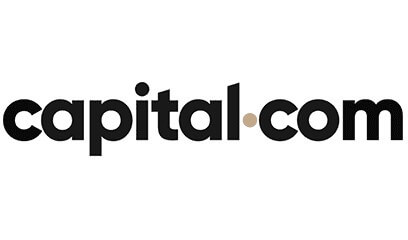
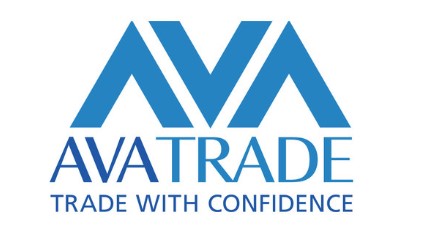
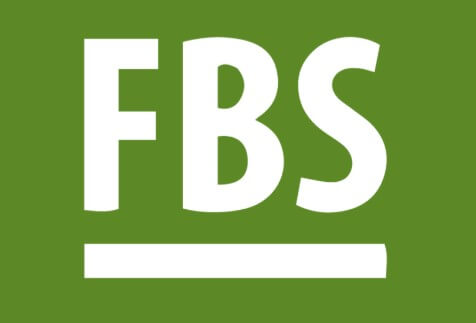

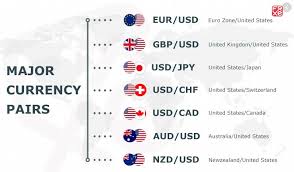 The foreign exchange market involves trading the relationship between two currencies, commonly known as a currency pair. Normally, all currencies around the world have a three-letter designation. For instance, it is MYR for Malaysian ringgit, USD for the US dollar and EUR for the Euro.
The foreign exchange market involves trading the relationship between two currencies, commonly known as a currency pair. Normally, all currencies around the world have a three-letter designation. For instance, it is MYR for Malaysian ringgit, USD for the US dollar and EUR for the Euro.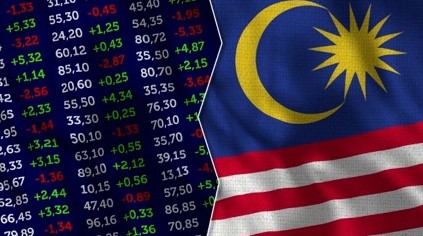 It is legal to trade forex in Malaysia, but only through a registered and approved broker or institution.
It is legal to trade forex in Malaysia, but only through a registered and approved broker or institution.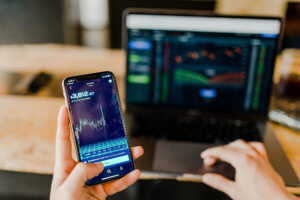 The Internet era and changes in forex regulations have made forex trading accessible to most Malaysians. Now, everyone in the country has easy access to both local and offshore forex brokers. However, you will need a certain amount of money to start trading. While there are other important factors to consider, the minimum amount to start trading is a very important factor that many take into account.
The Internet era and changes in forex regulations have made forex trading accessible to most Malaysians. Now, everyone in the country has easy access to both local and offshore forex brokers. However, you will need a certain amount of money to start trading. While there are other important factors to consider, the minimum amount to start trading is a very important factor that many take into account.